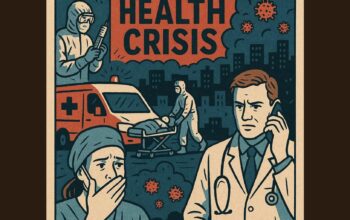by Stacy M. Brown
The House Republican budget passed Tuesday threatens to slash essential services for thousands of District of Columbia residents, cutting Medicaid, SNAP and college assistance to pay for tax cuts benefiting the wealthy.
These cuts would disproportionately affect Black and low-income communities in the District, where 21.8% of residents live below 200% of the federal poverty level, according to the Kaiser Family Foundation.
As of June 2024, 260,218 D.C. residents relied on Medicaid and CHIP for health and long-term care. Proposed cuts could eliminate coverage for many, exacerbating health disparities. Medicaid spending in the District totaled $4.2 billion in fiscal year 2022, with the federal government covering 78.2%. Since the end of the COVID-19 continuous enrollment provision in March 2023, D.C. has disenrolled 67,619 people from Medicaid.
Food assistance is also at risk. In 2022, over 140,000 D.C. residents received SNAP benefits. The proposed $230 billion reduction could force states to cover the gap or leave families without support. Cuts to SNAP would hit Black communities hardest, as they disproportionately rely on food assistance programs.
MAGA Republicans also didn’t spare education. The budget proposes $330 billion in cuts to student loan programs. In 2024, 11,910 D.C. residents enrolled in Affordable Care Act marketplace plans, with 22% receiving premium tax credits. Eliminating these credits would increase healthcare costs for thousands of small business owners and self-employed workers.
The cuts contrast sharply with proposed tax breaks: households earning $743,000 or more would receive an average $62,000 tax cut, surpassing the annual incomes of many D.C. Medicaid recipients.
“This budget prioritizes billionaires over working families,” said Rep. Ilhan Omar (D-Minn.).
Medicare beneficiaries in D.C. could also face challenges. In 2024, 95,577 residents were enrolled in Medicare, with 71,021 in Part D coverage. Recent measures capped monthly insulin costs at $35, benefiting nearly 4,855 D.C. users in 2020. These protections could be undermined under the new budget.
While the House plan includes a $4 trillion debt ceiling increase, it projects reaching the limit by November 2026.
With essential programs for health, food and education at risk, D.C. residents — particularly marginalized communities — face heightened economic insecurity under the proposed cuts.
Despite concerns, only one Republican, Rep. Thomas Massie (R-Ky.), opposed the budget, warning, “If the Republican budget passes, the deficit gets worse, not better.”
Source: Published without changes from Washington Informer Newspaper




